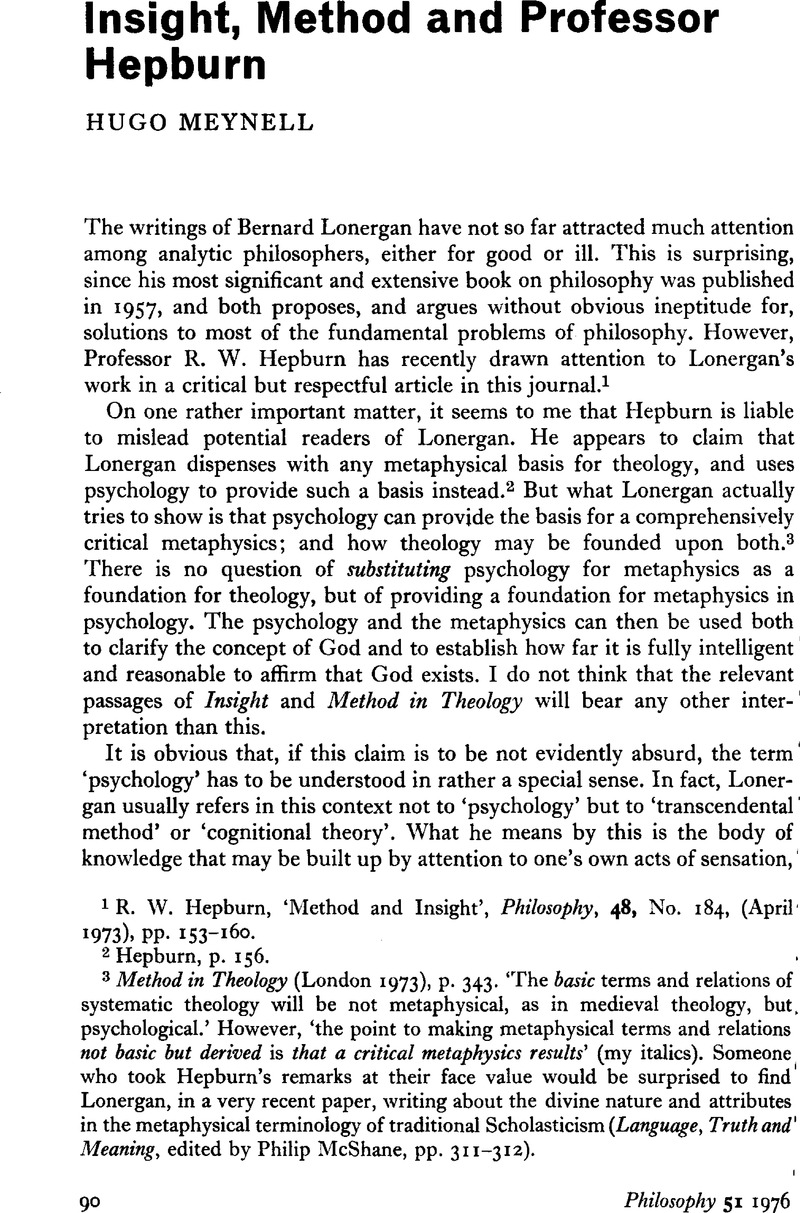No CrossRef data available.
Published online by Cambridge University Press: 25 February 2009

1 Hepburn, R. W., ‘Method and Insight’, Philosophy, 48, No. 184, (April 1973). PP. 153–160.CrossRefGoogle Scholar
2 Hepburn, p. 156.
3 Method in Theology (London 1973), p. 343Google Scholar. ‘The basic terms and relations of systematic theology will be not metaphysical, as in medieval theology, but, psychological.’ However, ‘the point to making metaphysical terms and relations not basic but derived is that a critical metaphysics results’ (my italics). Someone who took Hepburn's remarks at their face value would be surprised to find Lonergan, in a very recent paper, writing about the divine nature and attributes in the metaphysical terminology of traditional Scholasticism (Language, Truth and Meaning, edited by Philip McShane, pp. 311–312).
4 Cf. Method, Chapter I; Insight: A Study of Human Understanding (London 1957), Chapters XI–XVGoogle Scholar; Verbum: Word and Idea in Aquinas (London, 1968), Chapters I and II.Google Scholar
5 On the nature of metaphysics and its relation to the sciences, cf. Insight, pp. 390–396; and Isomorphism of Thomism and Scientific Method (Collection, London, 1967, pp. 142–151)Google Scholar.
6 Insight, p. 416.
7 Hepburn, p. 158.
8 Lonergan has distinguished four ‘transcendental precepts’; ‘Be attentive, Be intelligent, Be reasonable, Be responsible’ the first three are to be followed if we are to come to know the truth, the fourth in addition if we are to do what is good. Cf. Method, p. 53.
9 Insight, p. 399.
10 Method, p. 213f.
11 Cf. Insight, pp. 84–86.
12 Hepburn, p. 158.
13 Insight, Chapter XIX. Cf. Method, p. 101f.
14 Lonergan himself, in writings subsequent to Insight, has been at pains to emphasize that proof is no replacement for conversion. Cf. Method, p. 338.
15 Hepburn, p. 156.
16 Method, p. 101f.
17 Insight, Chapter XX and Epilogue.
18 Cf. Insight, Chapters VI and VII; Method, Chapter 2.
19 Insight, pp. 721–724; Method, pp. 117–118.